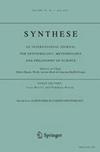The influence of philosophical training on the evaluation of philosophical cases: a controlled longitudinal study
IF 1.3
1区 哲学
Q1 HISTORY & PHILOSOPHY OF SCIENCE
引用次数: 0
Abstract
Abstract According to the expertise defense, practitioners of the method of cases need not worry about findings that ordinary people’s philosophical intuitions depend on epistemically irrelevant factors. This is because, honed by years of training, the intuitions of professional philosophers likely surpass those of the folk. To investigate this, we conducted a controlled longitudinal study of a broad range of intuitions in undergraduate students of philosophy (n = 226), whose case judgments we sampled after each semester throughout their studies. Under the assumption, made by proponents of the expertise defense, that formal training in philosophy gives rise to the kind of expertise that accounts for changes in the students’ responses to philosophically puzzling cases, our data suggest that the acquired cognitive skills only affect single case judgments at a time. There does not seem to exist either a general expertise that informs case judgments in all areas of philosophy, or an expertise specific to particular subfields. In fact, we argue that available evidence, including the results of cross-sectional research, is best explained in terms of differences in adopted beliefs about specific cases, rather than acquired cognitive skills. We also investigated whether individuals who choose to study philosophy have atypical intuitions compared to the general population and whether students whose intuitions are at odds with textbook consensus are more likely than others to drop out of the philosophy program.哲学训练对哲学案例评价的影响:一项纵向对照研究
根据专业知识辩护,案例法的实践者不必担心普通人的哲学直觉依赖于认识论无关因素的发现。这是因为,经过多年的训练,专业哲学家的直觉可能会超过普通人。为了调查这一点,我们对哲学本科学生(n = 226)的广泛直觉进行了一项纵向对照研究,我们在整个学习过程中每个学期对他们的案例判断进行抽样。在专业知识辩护的支持者的假设下,正式的哲学训练产生了一种专业知识,这种专业知识可以解释学生对哲学上令人困惑的案例的反应的变化,我们的数据表明,获得的认知技能一次只影响单个案例的判断。在哲学的所有领域中,似乎既不存在一个通用的专门知识来指导案例判断,也不存在一个专门针对特定子领域的专门知识。事实上,我们认为现有的证据,包括横断面研究的结果,最好是根据对具体情况的接受信念的差异来解释,而不是后天的认知技能。我们还调查了选择学习哲学的个人是否与一般人群相比具有非典型的直觉,以及直觉与教科书共识不一致的学生是否比其他人更有可能退出哲学课程。
本文章由计算机程序翻译,如有差异,请以英文原文为准。
求助全文
约1分钟内获得全文
求助全文
来源期刊

Synthese
管理科学-科学史与科学哲学
CiteScore
3.30
自引率
13.30%
发文量
471
审稿时长
1 months
期刊介绍:
Synthese is a philosophy journal focusing on contemporary issues in epistemology, philosophy of science, and related fields. More specifically, we divide our areas of interest into four groups: (1) epistemology, methodology, and philosophy of science, all broadly understood. (2) The foundations of logic and mathematics, where ‘logic’, ‘mathematics’, and ‘foundations’ are all broadly understood. (3) Formal methods in philosophy, including methods connecting philosophy to other academic fields. (4) Issues in ethics and the history and sociology of logic, mathematics, and science that contribute to the contemporary studies Synthese focuses on, as described in (1)-(3) above.
 求助内容:
求助内容: 应助结果提醒方式:
应助结果提醒方式:


